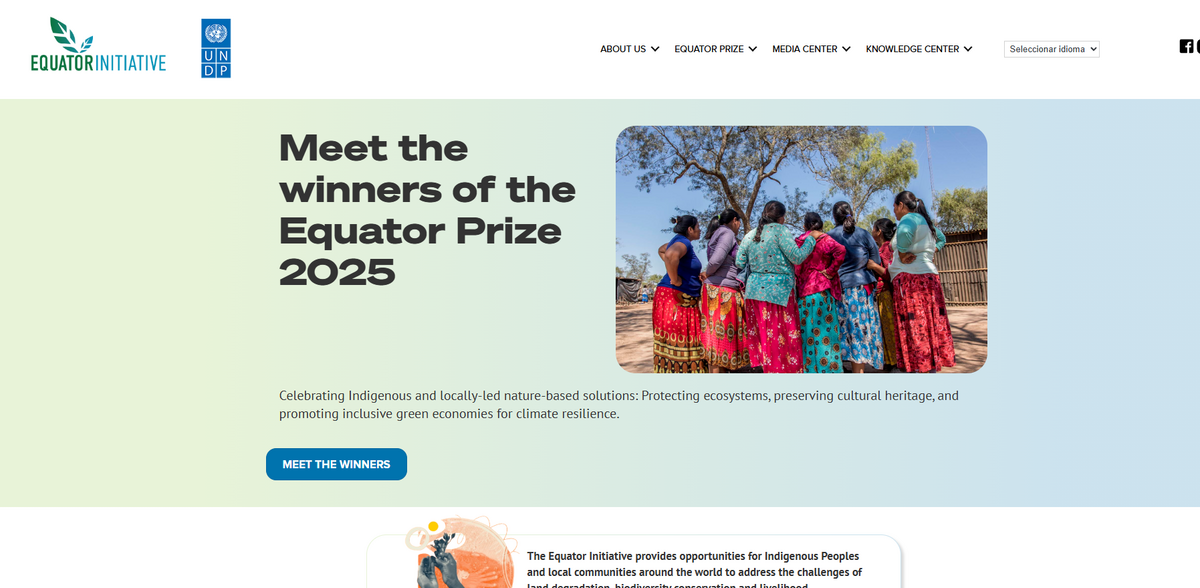Understanding the Equator Initiative
The Equator Initiative brings together the United Nations, governments, civil society, businesses, and grassroots organizations to recognize and advance local sustainable development solutions for people, nature, and resilient communities. This impressive coalition, built on global partnerships, shows that when diverse groups come together, great things can happen… By aligning efforts with local needs, the initiative sets the stage for transformative community development, forging links across cultures and environments without losing sight of the core goal: sustainability for all.
Key Benefits and Figures
Key figures and facts about the initiative include:
- The Equator Initiative unites major actors such as the United Nations and various governments.
- The Equator Prize is awarded biennially to recognize outstanding community efforts to reduce poverty.
- Efforts are focused on the conservation and sustainable use of biodiversity.
- Indigenous Peoples and local communities receive special opportunities to address challenges like land degradation and livelihood improvement.
- Community-driven exchanges, through Equator Dialogues, help people share experiences and influence policy.
Celebrating Local Solutions
The Equator Prize, organized by the Equator Initiative within the United Nations Development Programme, is awarded biennially to recognize outstanding community efforts to reduce poverty through the conservation and sustainable use of biodiversity. This award stands as a beacon—lighting up local achievements, celebrating efforts that solve critical challenges and inspire further action. Awardees are recognized not just for their successes in environmental conservation, but also for their role in lifting communities out of poverty, offering a model that many other initiatives aspire to emulate.
Supporting Indigenous Peoples and Local Communities
The Equator Initiative provides opportunities for Indigenous Peoples and local communities around the world to address the challenges of land degradation, biodiversity conservation, and livelihood improvement in a socially equitable manner. These opportunities forge a path for communities to engage actively with environmental issues while ensuring cultural integrity remains intact. In many instances, such empowerment leads to practical, grassroots solutions that are adaptable and replicable, resonating deeply across regions and inspiring local leadership in sustainable development.
Enhancing Knowledge Exchange
Equator Dialogues are an ongoing series of community-driven meetings and exchanges, held in conjunction with related international forums. Equator Dialogues provide opportunities for people to share experiences, develop capacities, and influence policy… These gatherings serve as vital touchpoints where local insights are pooled with global expertise to create adaptive solutions. Complementing the dialogues is Equator Knowledge—a research, documentation, and learning program focused on local best practices in sustainable development. Together, these initiatives catalyze ongoing peer-to-peer learning, nurture successful strategies, and encourage the replication of best practices in communities worldwide.
Building Resilient Communities Through Collaboration
By fostering collaborative platforms and supporting indigenous innovations, the project builds resilient communities that are well-prepared to tackle modern challenges. The approach focuses on bridging the gap between top-level strategic visions and on-the-ground realities. This dual commitment—honoring both global sustainability goals and local wisdom—generates environments where natural resources are managed wisely and community well-being is at the forefront. The narrative of community empowerment and environmental stewardship thus takes center stage, offering both hope and practical guidance.
Project Impact on Global Sustainability
- SDG 1 – No Poverty: Recognizing community efforts that reduce poverty through local sustainable practices.
- SDG 11 – Sustainable Cities and Communities: Strengthening community resilience and promoting inclusive development.
- SDG 13 – Climate Action: Addressing challenges such as land degradation and fostering sustainable management of natural resources.
- SDG 15 – Life on Land: Conserving and sustainably using biodiversity as a fundamental pillar of environmental stewardship.
- SDG 17 – Partnerships for the Goals: Building vibrant networks between the United Nations, governments, and grassroots organizations to tackle shared challenges.
Connecting Through Dialogues and Continuous Learning
Amid the busy pace of today’s global challenges, the Equator Initiative remains a refreshing reminder of the power of collective dialogue and shared knowledge. The project’s commitment to enabling regular discussions through Equator Dialogues makes it easier for local voices to reach influential platforms, sparking discussions that matter. Equator Knowledge, too, plays a pivotal role by systematically documenting local success stories—ensuring that each insight, each best practice is not lost but instead shared widely for replication in other communities. This dynamic approach connects people across borders, cultures, and sectors, paving the way for a future where sustainable development is a shared, accessible journey. Whether through spirited conversations… or detailed research, the initiative continues to light a path for resilient development and meaningful change.






















